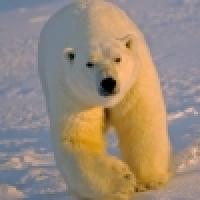
Ice, ice baby
With spring (hopefully) on its way, it looks increasingly less likely that we will be blessed with the cold, white, fluffy stuff this year. But if the winter Olympics leave you yearning for snow and ice, here are some related maths stories for you.
Maths solves frozen mystery
A mathematical computer model of glaciers has shed new light on the disappearance of four young Alpine walkers, nearly ninety years after they met their deaths in 1926.
A molecule's eye view of water
Water is essential for life on Earth, and it is a resource we all take for granted. Yet it has many surprising properties that have baffled scientists for centuries. Seemingly simple ideas such as how water freezes are not understood because of water's unique properties. Now scientists are utilising increased computer power and novel algorithms to accurately simulate the properties of water on the nanoscale, allowing complex structures of hundreds or thousands of molecules to be seen and understood.
Maths and climate change: the melting Arctic
The Arctic ice cap is melting fast and the consequences are grim. Mathematical modelling is key to predicting how much longer the ice will be around and assessing the impact of an ice free Arctic on the rest of the planet. Plus spoke to Peter Wadhams from the Polar Ocean Physics Group at the University of Cambridge to get a glimpse of the group's work.
Teacher package: On thin ice - maths and climate change in the Arctic
On the 1st of March 2009 three intrepid polar explorers, Pen Hadow, Ann Daniels and Martin Hartley, set out on foot on a gruelling trip across the Arctic ice cap to conduct the Catlin Arctic Survey. In this teacher package we look at some of the maths and science behind their expedition — climate and sea ice models, GPS and cartography, and how to present statistical evidence.
You can also read more about the expedition in the news stories On thin ice and Further evidence for Arctic meltdown.

Career interview: Avalanche researcher
Jim McElwaine tells Plus how he combines his two loves - mathematics and mountaineering - in avalanche research.
And if you want to learn more about maths and sport in general, visit our sporty sister site.